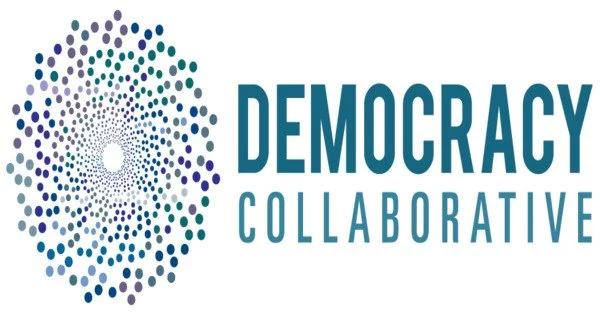Collaborative e-democracy is a form of democracy that uses digital technologies to enable citizens to participate more actively in the political process. It is a democratic concept that incorporates aspects of direct democracy, representative democracy, and e-democracy (i.e. the use of ICTs for democratic processes). It involves collaboration between citizens, governments, and other stakeholders to create policies, solve problems, and make decisions in a more democratic and inclusive way. In 2009, the concept was first presented at two international academic conferences.
Collaborative e-democracy typically involves the use of online platforms and tools to facilitate public participation and collaboration. These platforms may include social media, online forums, collaborative decision-making tools, and other interactive technologies that enable citizens to engage with one another and with government officials.
Collaborative e-democracy is a political system in which governmental stakeholders (politicians/parties, ministers, parliamentarians, and so on) and non-governmental stakeholders (NGOs, political lobbies, local communities, individual citizens, and so on) work together to develop public laws and policies. This collaborative policymaking process takes place on a governmental social networking site that is open to all citizens (collaborative e-policy-making).
Benefits
One of the key benefits of collaborative e-democracy is that it can help to increase transparency and accountability in the political process. By enabling citizens to participate more actively in decision-making, collaborative e-democracy can help to ensure that policies and decisions are more representative of the views and needs of the public.
While directly elected government officials (i.e. “proxy representatives”) would carry out the vast majority of law-making and policy-making processes (representative democracy), citizens would retain final voting power on each issue (direct democracy). Furthermore, each citizen would be able to propose their own policies to the electorate, thereby initiating new policy processes where applicable (initiative). Policies developed collaboratively would take into account the views of a larger proportion of the population, making them more just, sustainable, and thus easier to implement.
Overall, collaborative e-democracy has the potential to transform the way that governments interact with their citizens, making the political process more democratic, inclusive, and responsive to the needs of the people.
















